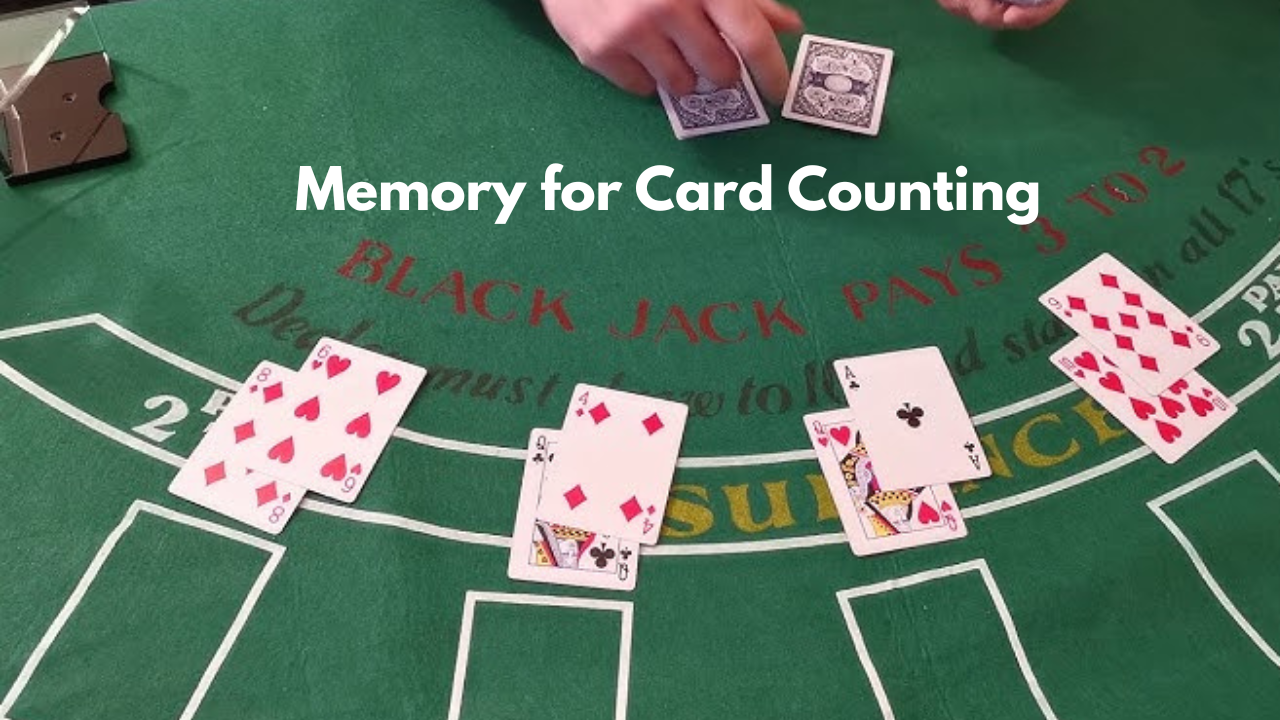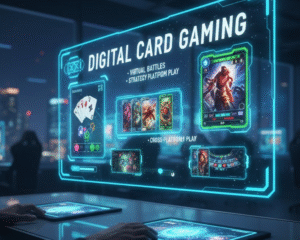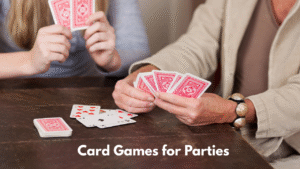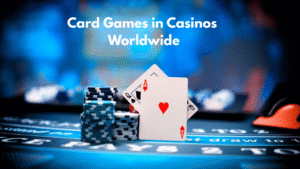Maps count is one of those casino strategies that seems almost magical for strangers. The idea of following each Memory for Card Counting, keeping the count straight and using it to bring out the house, seems something that can only attract genes. But here’s the truth: it is not a question of having a photographic memory: it is a matter of training your brain, grinding attention and building solid memory techniques.
If you’ve ever wanted to improve your Memory for Card Counting, this manual is for you. We lower the strategies step by step, in a practical way, easy to follow and surprisingly fun.
Because memory is important when the cards are counted
Take into consideration the Memory for Card Counting as juggling. The cards are the balls in the air and your brain is the juggler. If your memory is not sharp, let the “balls” quickly fall. With a good memory you can:
Move the high and low cards efficiently.
Avoid the second to concentrate during fast games. Keep calm under pressure when the merchant accelerates things.
Even the best map system will not save you without memory.
Start with the bases: in -depth analysis of the count
Before immersing ourselves in memory hacks, we simplify what you remember. The communication systems of the most popular maps, such as the hi-lo method, assign values to maps: Memory for Card Counting
Low cards (2–6) = +1
Neutral cards (7–9) = 0
High cards (10, j, q, k, a) = -1
Your job? Keep the total count as the game advances. It sounds easy, isn’t it? But as soon as the game is accelerated, the memory becomes your best friend.
Practice mental mathematics daily
Storage and mathematics go hand in hand when counting cards. The more you can add or pull small numbers in your head, the easier it becomes.
Try these daily exercises:
Add random numbers when you walk and subtract them quickly. Use a flash Memory for Card Counting deck with +1 and -1 that have been written on it. Mix, turn around and follow the total.
The time itself – the speed is in real blackjack.
Imagine it as Brain Lounge. The more you train, the stronger your mental muscles.
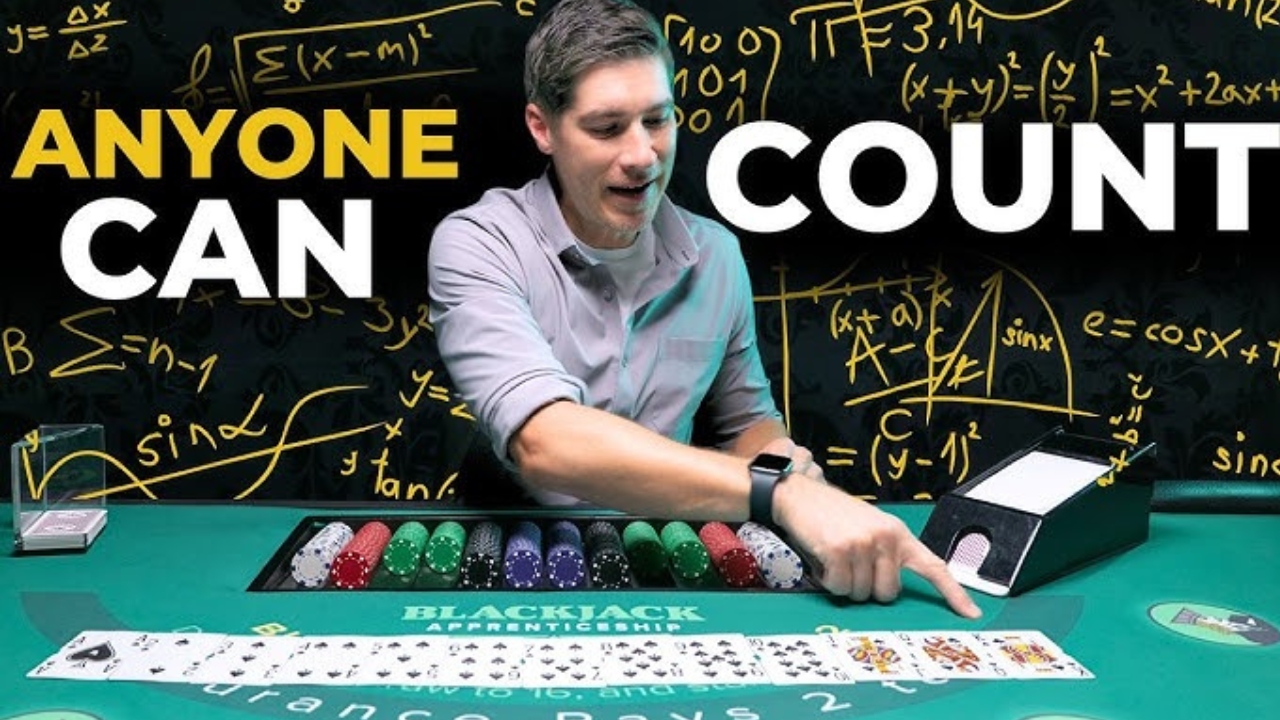 Use Chunking to reduce mental load
Use Chunking to reduce mental load
Have you ever wondered how do we remember the telephone numbers or the PIN codes? “Lizziamo” them. Instead of remembering 10 separate figures, we group them in smaller and more manageable parts.
Apply this trick to count the cards:
Instead of elaborating each card separately in small groups.
For example, if three consecutive cards increase at +2, keep “+2” in the brain instead of remembering each step. This increases the cargo of your working memory and helps you follow a quick dealer.
Develop a rhythm when you play
The number of Memory for Card Counting does not only concern memory – it is a question of rhythm. If you fall from the rhythm, you will lose your place.
Try this technique:
Do you have a calm beat in your head, almost typing on your foot on a song.
If each card is processed, synchronize your count with this beat. Change that cardelt in something like Dancing – Edge, of course and less stressful.
View techniques for a stronger call campaign
Your brain loves graphics. The songs itself can become boring, but when they connect them to the images they remain better.
For example:
Imagine the low cards (+1) while the balloons float.
High cards (-1) as heavy weights that lower themselves. Neutral cards (0) like clouds that only pass.
By linking cards with visuals, you can create a memory link with which you can recall more quickly in real time.
Train with a real deck at home
Nothing goes through the practical exercise. Mix a deck and distribute cards individually and keep it aloud. If you feel comfortable, you challenge yourself:
Taute tacitly while you have to do faster. It counts with two decks simultaneously.
See if your last count corresponds to the real Memory for Card Counting that are left.
This type of exercise not only refine the memory, but also creates trust for real casino environments.
Increase your attention with awareness
The distractions are the enemy of a map desk. If your mind moves away, your memory will slide down. Material exercises can help:
Try deep breathing techniques before practicing sessions.
Meditate 5 to 10 minutes a day to form attention.
Practice the development of “tasks” on activity at the same time without multitasking.
If your brain learns to stay there, remember.
Use memory palans for progressive training
If you want to go to the next level, take a technology from memory champions: the memory palace. Here’s how it works:
Imagine a well -known place, like your home.
Assigns groups of cards or values to objects in each room.
While walking through the Palazzo della Memoria, you remember the values connected to each position.
It may seem strange, but this technique can shoot your call as soon as you understand.
Exercise and rest: the unfortunate heroes
You may not think that your physical health influences the Memory for Card Counting, but it does so. Studies show that exercise increases memory and mental sharpness. Sleep also plays a massive role in the consolidation of memory.
So, in front of a large blackjack meeting:
Sleep at least 7 to 8 hours.
Make an easy physical activity to keep your brain to be aware.
Avoid alcohol – it slows the memory recall. The number of cards is a mental sport, and your brain deserves the same care as an athlete gives your body.
Don’t forget the coating
Even with a great memory, the casino Memory for Card Counting meters do not greet exactly. Remember that the goal is not to look like a mathematical magician – he should integrate.
Avoid looking at the cards too intensely.
Take part in a small conversation with the dealer. Put the leisure bets from time to time to suspect.
A good memory helps you to count without having to appear with suspicion and gives you both skills and stealth.
Read More: Betting vs Gambling: Key Differences Explained
Conclusion
Improving your memory for the Memory for Card Counting is not to be a genius – it is a coherent practice, intelligent techniques and mental discipline. With the combination of daily mathematical exercises, section strategies, visualization, mindfulness and even advanced tools such as memory palates, you can train your brain to remain lively and confidential at the Blackjack table.
Just like an athlete trains the muscles, train your brain. Over time, what felt in the past crushing becomes second nature. The cards fall, the rhythm flows and your memory is one step ahead of the house.
